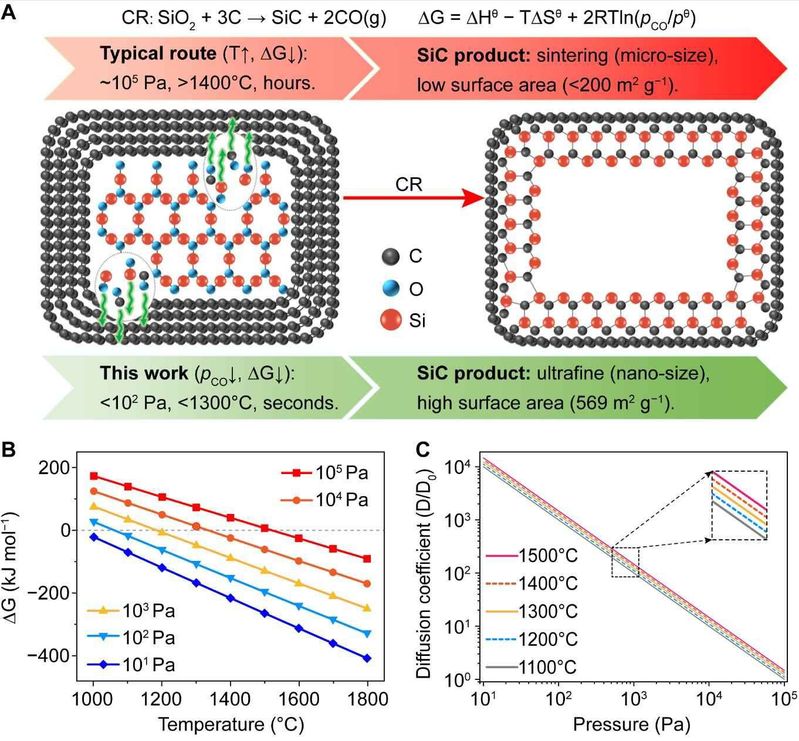[PNAS] A General Method for Rapid Synthesis of Refractory Carbides by Low-Pressure Carbothermal Shock Reduction
Abstract: Refractory carbides are attractive candidates for support materials in heterogeneous catalysis because of their high thermal, chemical, and mechanical stability. However, the industrial applications of refractory carbides, especially silicon carbide (SiC), are greatly hampered by their low surface area and harsh synthetic conditions, typically have a very limited surface area (<200 m2 g−1), and are prepared in a high-temperature environment (>1,400 °C) that lasts for several or even tens of hours. Based on Le Chatelier’s principle, we theoretically proposed and experimentally verified that a low-pressure carbothermal reduction (CR) strategy was capable of synthesizing high–surface area SiC (569.9 m2 g−1) at a lower temperature and a faster rate (∼1,300 °C, 50 Pa, 30 s). Such high–surface area SiC possesses excellent thermal stability and antioxidant capacity since it maintained stability under a water-saturated airflow at 650 °C for 100 h. Furthermore, we demonstrated the feasibility of our strategy for scale-up production of high–surface area SiC (460.6 m2 g−1), with a yield larger than 12 g in one experiment, by virtue of an industrial viable vacuum sintering furnace. Importantly, our strategy is also applicable to the rapid synthesis of refractory metal carbides (NbC, Mo2C, TaC, WC) and even their emerging high-entropy carbides (VNbMoTaWC5, TiVNbTaWC5). Therefore, our low-pressure CR method provides an alternative strategy, not merely limited to temperature and time items, to regulate the synthesis and facilitate the upcoming industrial applications of carbide-based advanced functional materials.
Link: https://www.pnas.org/doi/10.1073/pnas.2121848119






